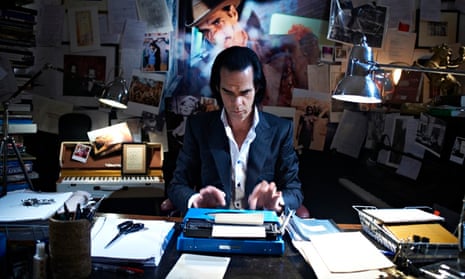At Film4, we talk about our innovation strategy as a treasure map rather than a road atlas. While we don’t have a clear A to B route towards a single goal, we’re privileged to have a talented team to help us understand where “there be dragons” and where it might be promising to dig for treasure.
Frank Rose, the author of The Art of Immersion and keynote speaker at our upcoming Innovation Forum, puts it well when he says:
We stand now at the intersection of lure and blur. The future beckons, but we’re only part way through inventing it. We can see the outlines of a new artform, but its grammar is as tenuous and elusive as the grammar of cinema a century ago.
In essence, this sort of work – as with all creative endeavour – must be an ongoing conversation and process of discovery. We must continue to risk, learn, adapt and move forward. Film4 is now three years into its investment in this space and building on what we’ve learned, we’re now concentrating on storytelling and how we can support film-makers to tell deeper or broader stories to their audiences. In many ways, because Film4 works in a talent-led, ideas-focused way, this is our key differentiator. It’s where we, and perhaps the cultural sector more broadly, can make more impact – and so it must be at the core of our innovation.
Story, not platform, driven work
As a sector, we need to create cohesive, accessible projects where film and digital are nurtured holistically. We need to experiment in smaller ways in groundbreaking, multi-platform projects to really push at the edges. We must continue to explore opportunities to innovate in the distribution arena, working in new partnerships and developing more direct digitally-enabled relationships with our audiences. These are all things that Film4 does, but they are done with the artist at the centre.
Why? Because in this rapidly changing content and industry landscape, story and strongly authored storytelling becomes more, not less, important. To create effective work in this space, it’s vital to have a properly joined-up approach. Done right, extraordinary things will grow – and story-led work has perhaps the most potential to do things that break vital new ground. This isn’t because of something new or a shiny technology; it’s something the creative sector has always known: we are story-driven creatures.
Recent psychological research revealed how people want to inhabit storyworlds because of how stories work in the brain. We actually always project ourselves into all sorts of storyworlds (books, films and beyond) in order to understand them. So it follows that the greater the ability of an audience to project into a world, the greater their understanding and attachment to it.
To support this direction at Film4, we operate on an iterative model; we start with film-makers and their ideas. We then commission innovatively and we partner film-makers, where appropriate, with the best digital creatives. Those teams then craft stories designed to reach out to audiences from the outset.
Measuring success
For us, we measure the success of this work both qualitatively and quantitatively. At its most simplistic: is the project creatively successful and does it properly engage with audiences? Something organisations can be slow to realise is that something being “innovative” isn’t enough on its own any more. Instead, they should seek to do the best projects in an innovative way and ensure these projects impact with audiences, take risks and show some sort of return. At Film4, return doesn’t necessarily mean pure profit, but there has to be something of value coming back to us, for example a better understanding of who our audience is.
By making this a learning loop, we can be agile and build on our work, adapting our approaches from project to project. As a company, we’ve learned there’s a real desire from film-makers and producers to explore this space, but it takes time and sometimes considerable resources to support teams working in this new way. However, once it’s done, those teams can undertake and sustain their own innovation activity, sowing the seeds we’ve helped nurture.
Projects need to be looked after holistically. Film and digital together gives great results because film-makers know we have their vision for the project at the heart of everything we do; film and digital are equally important parts of the commissioned project. Film-makers, and wider teams, learn best from a joined-up approach. It’s something all arts organisations can learn from, but these projects must be identified as early as possible in the creative process or digital becomes a bolt-on and we’re all limited in our ability to innovate.
Where next?
Innovation is a broad space, but by trying things at different ends of the spectrum, Film4 will be able to rapidly learn and seed that learning right across our own work and our wider industry. For film-makers or artists, it’s all still evolving and therefore up for grabs. It starts with you: draw your own treasure map.
For those of us who are lucky enough to be working with brilliant digital creatives, we need to fully support their bold and brave innovation. We must be committed to taking risks. But coming from an artist-led angle doesn’t mean we shouldn’t listen to audiences. In fact, as an industry, we must be willing to think more fully from the audience perspective. Ultimately, we need to keep trying new things, but we must try them together in an open and exploratory way.
More like this
Has technology changed cultural taste?
How mobile tech is changing the way we make and enjoy art
Art a hack: is hacking yesterday’s news?
Anna Higgs is head of digital at Film4
The Film4 Innovation Forum 2014 takes place on 18 November
Join our community of arts, culture and creative professionals by signing up free to the Guardian Culture Pros Network.
